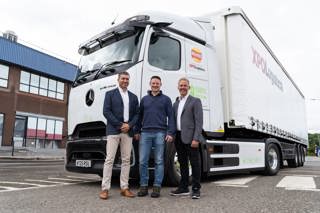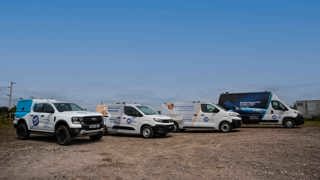Network Rail has started trialling telematics, although the main objective is to improve utilisation and for logbook keeping in shared vans and the pool fleet.
Its fleet is just under 8,000 vehicles but it has around 18,500 drivers, including casual users – the need for robust records is clear.
Nevertheless, telematics also reduces the company’s exposure to risk and aids compliance.
Robust licence checking
Licence checking is also a priority, using the DVLA electronic system. Network Rail works closely with the unions and consults on new initiatives to reassure them that they are always used for the right purposes.
Electronic checks are a more accurate and robust method of licence checking, according to Osborn.
“It streamlines the process and removes the admin burden on the individual and the line manager, which frees them up to focus on their job,” she adds.
“It also means we can target our training better, although we call it coaching. We want to provide more coaching that is tailored to drivers rather than one-size-fits-all.
"We already tailor our risk assessments and support our drivers with education and coaching either online or on-road.”
For commercial vehicles, the company is rolling out electronic weighing systems to tackle the issue of heavily converted vehicles being operated by a transient workforce.
Irrespective of their level of experience, drivers will know instantly whether their vehicle is overloaded, even if they have just jumped into it to go track-side.
“Their job is to maintain the rail structure for the public; our job us to support them and make it as easy as possible,” says Forrester.
The fleet team encourages feedback from drivers about safety con-cerns which has resulted in a number of changes, such as installing ergonomically-friendly ladders, intelligent tow bars and reversing sensors.
“Our goal is to make them engaged with the vehicle and a link to the fleet team,” says Osborn.
11 'lifesaving rules'
The company recently upped the stakes on its safety agenda by introducing 11 ‘lifesaving rules’ across the business.
Three are related to vehicles, underlining their importance: always wear a seat belt while in a moving vehicle and always obey the speed limit; never use a hand-held device or programme any hands-free device while you are driving a road vehicle; never drive or work while under the influence of drugs or alcohol.
While non-compliance with the rules could have serious consequences, Network Rail takes an enlightened approach to accident reporting.
Its priority is for damage to be reported quickly no matter how small. To encourage staff, there are no comebacks.



















Login to comment
Comments
No comments have been made yet.